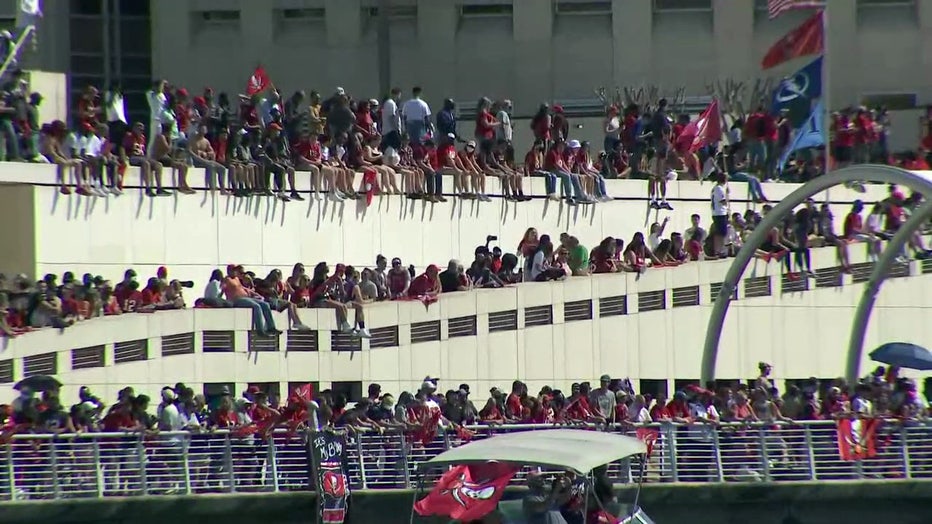Spike in COVID-19 cases expected after Super Bowl celebrations, experts say
TAMPA, Fla. - After nearly two weeks of Super Bowl LV festivities in the Tampa Bay region, the excitement and celebrations have come to a close. The NFL Experience opened to fans January 29 and kicked off a run of events, parties, and celebrations connected to the big game, and the Buccaneers’ historic win.
Super Bowl LV brought tens of thousands of people from all over the country to Tampa. However, the packed streets and dense crowds have health officials concerned about the spread of COVID-19.
"Without masks, yelling, screaming, cheering, singing, that’s exactly the type of petri dish that creates the community spread," said University of South Florida professor of public health and medicine Dr. Jay Wolfson.

Over the next two to eight weeks, experts expect to see a spike in coronavirus cases connected to the big game and the related festivities. Those who came to the events, parties, tailgates and celebrations may have already been infected. They, in turn, likely passed the virus on to others.

Doctor explains how to get Florida to be COVID-free
He says vaccines play a big role in getting past the pandemic in the Sunshine State.
"It’s proximity, congestion and time," Wolfson said. "All it takes is one case to start that forest fire."
The Florida Department of Health in Hillsborough County says it is working to track COVID-19 infections linked to the Super Bowl. Officials put out a nationwide call requesting to be notified about all positive cases in folks who were in Tampa.
"Because the Super Bowl draws such a national, and probably even international crowd, we wanted to just make sure we weren’t missing those pieces of information from other states," said DOH Hillsborough epidemiology program manager Michael Wiese.
Featured
Maskless fans celebrate Super Bowl win despite Tampa's outdoor mask mandate
So much for the mayor's order requiring masks at Super Bowl parties. Throngs of mostly maskless fans took to the streets of downtown Tampa and packed sports bars as the Bucs won the Lombardi Trophy.
Across the country, health departments and other public health organizations can share case data through the CDC’s epidemic information exchange network, Epi-X.
Experts want to know if the massive gatherings contributed to the spread of infection. Whether there is a Super Bowl LV outbreak or not, the Department of Health will have the data.
"I think there’s a lot of value in making sure that we understand what may have occurred," Wiese said. "We will definitely find that out over the course of the next few weeks."



